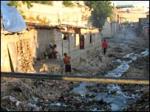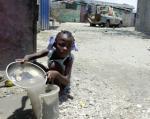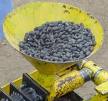Treating Malnutrition, Saving Lives in Cap Haitian
 Malnutrition is a threat to health but it is treatable. The cure is the appropriate kind of food. There is no reason why children should die either from malnutrition or infectious diseases they are vulnerable to because malnourishment has weakened their immune systems. Earlier we wrote about Plumpynut, a Ready to Use Therapeutic Food that has revolutionized the way we treat malnourished children - and saved many of their lives in the process. Current sent us a video about Meds and Foods for Kids, organization in Cap Haitian that decided to make their own version of Plumpynut from local ingredients. They have been very successful and now the World Bank is supporting them to provide "Medika Mamba" nationwide. It is an innovative idea that is now having a nationwide impact.
Malnutrition is a threat to health but it is treatable. The cure is the appropriate kind of food. There is no reason why children should die either from malnutrition or infectious diseases they are vulnerable to because malnourishment has weakened their immune systems. Earlier we wrote about Plumpynut, a Ready to Use Therapeutic Food that has revolutionized the way we treat malnourished children - and saved many of their lives in the process. Current sent us a video about Meds and Foods for Kids, organization in Cap Haitian that decided to make their own version of Plumpynut from local ingredients. They have been very successful and now the World Bank is supporting them to provide "Medika Mamba" nationwide. It is an innovative idea that is now having a nationwide impact.








